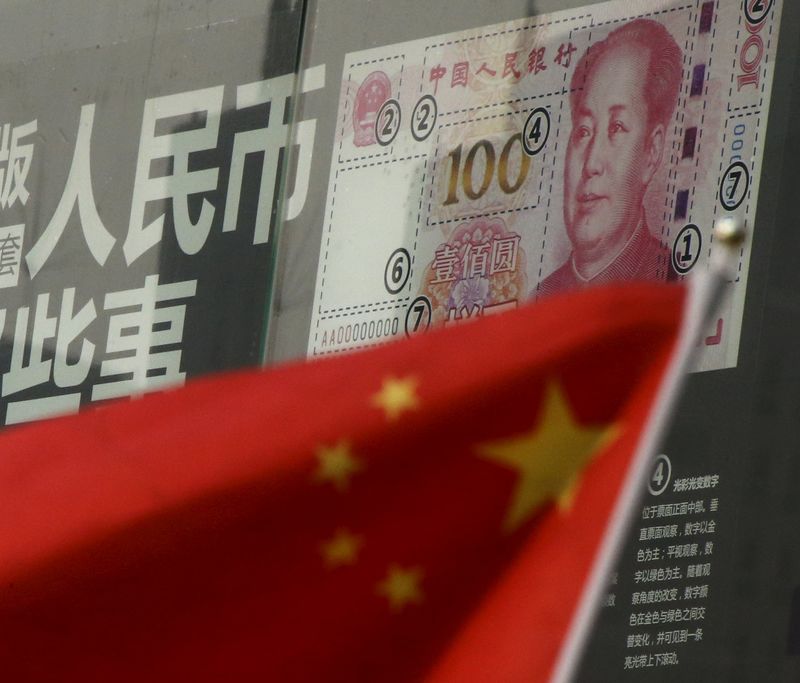 © Reuters. China grants fresh outbound investment quotas after 3-year hiatus
© Reuters. China grants fresh outbound investment quotas after 3-year hiatusBEIJING/SHANGHAI (Reuters) – China resumed a key outbound investment scheme on Wednesday, granting qualified domestic financial institutions fresh quotas to buy overseas stocks and bonds for the first time since early 2015.
The resumption of the Qualified Domestic Institution Investor (QDII) scheme comes after Chinese President Xi Jinping vowed to further open up China’s economy and signals that regulators are less worried about capital flight.
China’s foreign exchange regulator in April granted combined quotas of $8.34 billion to 24 institutions under QDII, according to a statement on the website of the State Administration of Foreign Exchange (SAFE). That brings outstanding QDII quotas to $98.33 billion.
China unofficially suspended QDII in 2015 when gyrations in Chinese stock and currency markets prompted capital flight. Over the past year, Chinese equities have steadied while the yuan <> has gained sharply against the U.S. dollar, easing worries over capital outflows
The QDII scheme was created in 2006 to allow domestic investors to put money into overseas financial markets.
Earlier this week, China’s forex regulator said it widened the quotas of two other outbound investment schemes in Shanghai and Shenzhen as part of the government’s efforts to liberalize financial markets.
In a separate statement on Wednesday, the regulator said the outstanding amount of China’s dollar-denominated Qualified Foreign Institutional Investor (QFII) program rose to $99.46 billion as of April 24, from $99.36 billion at the end of March.
The QFII scheme was created by China to allow foreigners to invest in Chinese capital markets.
Fusion Media or anyone involved with Fusion Media will not accept any liability for loss or damage as a result of reliance on the information including data, quotes, charts and buy/sell signals contained within this website. Please be fully informed regarding the risks and costs associated with trading the financial markets, it is one of the riskiest investment forms possible.
Source: Investing.com



























